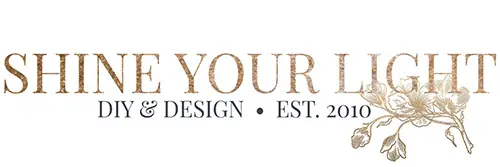
Happy Monday, my dears, and welcome to another delightful edition of Mangia Mondays!
As always, I’m thrilled to be co-hosting this foodie blog hop alongside the lovely Kristin of Delightfully Dowling. Every Monday, we invite you to join us in celebrating all things delicious—whether that means sharing a tried-and-true recipe, raving about a fantastic restaurant experience, or simply indulging in the joy of culinary exploration.
Now and then, I like to switch things up here on Mangia Mondays, and today is one of those days! Rather than sharing a recipe, I thought it would be fun (and informative!) to talk about something just as enjoyable: wine. More specifically, let’s explore the many wonderful reasons to pour yourself a glass of vino—responsibly, of course!

The Health Benefits of Moderate Wine Consumption
A few years ago, an article in Food & Wine Magazine piqued my interest regarding the potential health benefits of wine. While we are all aware of the dangers associated with overconsumption, the key takeaway here is moderation. According to the American Heart Association, moderate wine drinking is defined as one to two 4-ounce glasses per day.
Have you ever measured 4 ounces in your wine glass? I did and let me tell you, it’s less than you might think! I poured water into my favorite glass, and I was genuinely surprised at how small the portion looked. This little exercise is a great way to gauge your intake and ensure that you’re staying within the recommended limits. The last thing I want is to overindulge—no, thank you! But enjoying a glass of wine in moderation? That’s a practice I can get behind, especially when science supports its benefits.

In 2011, the Centers for Disease Control and Prevention (CDC) released a report indicating that moderate alcohol consumption is considered a low-risk lifestyle behavior. When combined with other healthy habits—such as not smoking, maintaining a nutritious diet, and engaging in regular physical activity—moderate wine consumption can contribute to a longer, healthier life. {via}
Why Wine? The Science Behind the Sip

Wine, particularly red wine, contains antioxidants known as polyphenols, including resveratrol and flavonoids. These compounds have been linked to numerous health benefits, particularly in relation to heart health. But the advantages don’t stop there! Let’s take a closer look at the scientifically supported benefits of moderate wine consumption:
1. Reduces Heart Attack Risk
A 16-year study conducted by the Harvard School of Public Health, published in the Annals of Internal Medicine in 2007, found that individuals suffering from high blood pressure who consumed wine moderately were 30% less likely to have a heart attack compared to non-drinkers.
2. Lowers the Risk of Heart Disease
Red wine contains tannins, which include compounds called procyanidins. A study published in Nature (2006) by Queen Mary University in London confirmed that these compounds offer significant protection against heart disease.
3. Lowers the Risk of Stroke
In an 8-year study conducted by Columbia University, published in Stroke (2006), researchers found that moderate drinkers were 50% less likely to experience a blood clot-related stroke compared to non-drinkers.
4. Promotes Longevity
If you’re looking for the fountain of youth, wine might just be the answer! A 29-year study conducted in Finland and published in the Journals of Gerontology (2007) found that wine drinkers had a 34% lower mortality rate compared to those who drank beer or spirits.
5. Slows Brain Decline
Cognitive decline is a common concern as we age. However, research published in Neuroepidemiology (2006) by Columbia University suggests that moderate wine consumption may help keep our minds sharp, as non-drinkers experience a faster rate of cognitive decline than moderate drinkers.
6. Reduces the Risk of Alzheimer’s Disease
The Alzheimer’s Research Center highlights that red wine contains resveratrol, a powerful antioxidant that has been shown to reduce levels of amyloid plaques in the brain. These plaques are a hallmark of Alzheimer’s disease, making moderate wine consumption a potential ally in cognitive health.
7. Lowers the Risk of Type 2 Diabetes
A large-scale study involving over 300,000 participants, conducted by Amsterdam’s VU University Medical Center and published in Diabetes Care (2005), found that moderate wine drinkers were 30% less likely to develop type 2 diabetes compared to non-drinkers. Additionally, a report from the University of Udine in Italy stated:
“Red wine consumption during a meal significantly preserves plasma antioxidant defenses and reduces both LDL oxidation and thrombotic activation. The consumption of a moderate amount of red wine during meals may have a beneficial effect in the prevention of cardiovascular disease in diabetic patients.”
8. Reduces the Risk of Cataracts
An Icelandic study published in Nature (2003) found that moderate drinkers were 32% less likely to develop cataracts than non-drinkers. Wine drinkers, in particular, fared even better—43% less likely to develop cataracts compared to those who consumed beer.
9. Cuts the Risk of Cancer
The antioxidants in red wine have been shown to target cancer cells. A study by the University of Rochester Medical Center, published in Advances in Experimental Medicine and Biology (2008), found that certain compounds in red wine can destroy pancreatic cancer cells by disrupting their energy source. Additionally, research published in the American Journal of Gastroenterology (2005) by Stony Brook University found that drinking red wine reduces the risk of colon cancer by 45%.
A Toast to Good Health!

So, my dear friends, if you love sipping on a glass of wine, you can now enjoy it even more—knowing that science supports your indulgence (in moderation, of course!).
And if you need a little extra encouragement, let’s not forget this delightful German saying:
Drink wine, and you will sleep well.
Sleep, and you will not sin.
Avoid sin, and you will be saved.
Ergo, drink wine and be saved.
Cheers—to your health and happiness! 🥂
Sources:
- Food & Wine Magazine
- Centers for Disease Control and Prevention (CDC)
- US National Library of Medicine
- University of Rochester Medical Center
- Harvard School of Public Health
I’d love to hear your thoughts! Do you enjoy a glass of wine with dinner? Have you noticed any benefits yourself? Let’s chat in the comments below! 🍷✨

